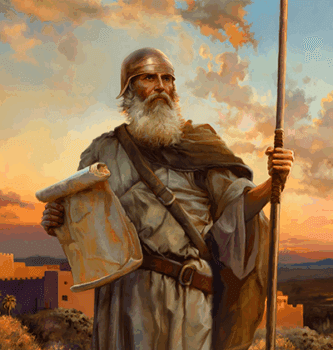A New Heart – Vincent Injety
Study: Lesson 1, Recipe for Success — Sadhana Jaladhi THANK YOU for your continued financial support of our Media Ministries. Please donate by visiting "https://adventistgiving.org/#/org/ANB4RC/envelope/start" and select “Media Ministries”. Connect With Us
X: RemnantSDA
Facebook: RemnantSDAchurch.org
Instagram: RemnantSDAchurch Source: https://www.youtube.com/watch?v=2FDSHW7a_Bc
Démanteler le Dieu célibataire

par Admiral Ncube | 2 octobre 2025 | C’est la saison des camps meetings dans cette partie du monde. Cette année, j’ai eu l’occasion de retourner au Zimbabwe où j’ai assisté à un camp meeting à Melfort, à quelques kilomètres de la capitale Harare. Cette année, la pasteure Donnett Blake, directrice du ministère des femmes […] Source: https://atoday.org/demanteler-le-dieu-celibataire/
Madhuker Ohal
Celebrating the life of Madhuker Ohal Source: https://www.youtube.com/watch?v=SoLAK2S2zkw
Vespers | Oct 3, 2025
The Blessings of Forgiveness – Sidharth Chavan THANK YOU for your continued financial support of our Media Ministries. Please donate by visiting "https://adventistgiving.org/#/org/ANB4RC/envelope/start" and select “Media Ministries”. Connect With Us
X: RemnantSDA
Facebook: RemnantSDAchurch.org
Instagram: RemnantSDAchurch Source: https://www.youtube.com/watch?v=wSRLih59UuY
Inside Story: Worshiping a Tree
Inside Story for Friday 3rd of October 2025
Pray for Global Mission pioneers who, like Sudhakar, have accepted the challenge of proclaiming the gospel to unreached people groups around the world. Learn more about Global Mission pioneers: bit.ly/GMPioneers
Sudhakar immediately noticed the tree when he arrived on the Bangkok Noi campus to work as a Global Mission pioneer in Thailand. Colorful ribbons were tied to the tree. Small images of stone and wood encircled it. Bananas, apples, and burning incense sticks were placed in its trunk. Sudhakar learned that townspeople believed that an ancestral spirit lived in the tree. So, they worshiped the tree according to their traditions.
Sudhakar was confused because the spirit tree stood on land that a kind-hearted woman had donated to a Seventh-day Adventist mission hospital. He asked the pastor why the community people came onto the campus to worship the spirit tree. The pastor explained that townspeople had been worshiping the spirit tree long before the land was donated to the church.
Sudhakar understood the cultural sensitivities, and he thought, “If the ribbons and other objects suddenly disappeared, townspeople might overreact.”
But he was determined to do something. With much prayer to the God of heaven, he befriended the community leader and other townspeople. He invited them to cooking courses, English classes, and worship services in a new center of influence that he was organizing in a building near the spirit tree. Then, slowly, he started cleaning up the tree, removing the ribbons, the images, the bananas, the apples, and the incense sticks. It took about a week.
No one in the community said a word to him about the spirit tree.
Then one day, Sudhakar had an unexpected encounter. As he passed by the tree after a class in the center of influence, a voice called out to him by name. The voice offered wealth if Sudhakar would only obey.
But Sudhakar was not tempted. He didn’t want anything from the spirit. He wanted the spirit to go. “I command you in Jesus’ name to leave this campus and never come back,” he said.
Three days later, Sudhakar noticed that the tree was dying. All of its leaves fell to the ground. Four weeks later, only a dry, dead tree remained. Sudhakar took an ax and chopped it down.
Townspeople were astounded as word spread around town about what had happened. Large numbers flocked to the center of influence. Sudhakar taught the townspeople to pray to the only true God. Seven people began to attend Sabbath worship services in the center of influence and later were baptized.
 (1)
(1)Source: https://ssnet.org/blog/25d-01-inside-story-worshiping-a-tree/
Friday: Further Thought – Recipe for Success
Daily Lesson for Friday 3rd of October 2025
Read Ellen G. White, “Crossing the Jordan,” Pages 481, 482, in Patriarchs and Prophets; “Entering the Promised Land,” p.
175, in The Story of Redemption.
“In His promises and warnings, Jesus means me. God so loved the world, that He gave His only-begotten Son, that I by believing in Him, might not perish, but have everlasting life. The experiences related in God’s word are to be my experiences. Prayer and promise, precept and warning, are mine. . . . As faith thus receives and assimilates the principles of truth, they become a part of the being and the motive power of the life. The word of God, received into the soul, molds the thoughts, and enters into the development of character.”—Ellen G. White, The Desire of Ages, Pages 390, 391.
“There is not a point that needs to be dwelt upon more earnestly, repeated more frequently, or established more firmly in the minds of all than the impossibility of fallen man meriting anything by his own best good works. Salvation is through faith in Jesus Christ alone.”—Ellen G. White, Faith and Works, p. 19.
Discussion Questions
|
 (0)
(0)Source: https://ssnet.org/blog/25d-01-further-thought-recipe-for-success/
1: Recipe For Success — Teaching Plan
Key Thought: Moses and Joshua had been told they would lead Israel into the promised land. Joshua would finish the work that had been given to Moses. Joshua was really the new Moses.
October 4, 2025
1. Have a volunteer read Exodus 33:11, Deuteronomy 1:38, 31:23, Numbers 14:6,30,38, Numbers 32:12.
- Ask class members to share a short thought on what the most important point is in this passage.
- What do these texts tell us about Joshua?
- Personal Application: Because God has called individuals to lead His people, why is it important to remember who the true invisible leader of the church is? Share your thoughts.
- Case Study: One of your relatives states, “I want to believe that one great spiritual leader would help unite the country and bring about a great spiritual revival. But he was accused of adultery and making and spending millions on himself. I’m skeptical of any
 spiritual leader now and their sincerity.” How would you respond to your relative?
spiritual leader now and their sincerity.” How would you respond to your relative?
2. Have a volunteer read Joshua 1:4-6, Hebrews 6:17,18.
- Ask class members to share a thought on what the most important point in this text is.
- What promises of God are most precious to you? What do you need to do for those promises to become a reality?
- Personal Application: What does it mean to be the heirs of God’s promises? Share your thoughts.
- Case Study: One of your friends states, “What is the relationship between God’s promises and our obedience to Him? What is the danger of emphasizing promises without obedience? What is the danger of stressing obedience over God’s promises?” How would you respond to your friend?
3. Have a volunteer read Joshua 1:7-9, Ephesians 6:10-18.
- Ask class members to share a short thought on what the most important point in this text is.
- Why did the Lord emphasize twice that Joshua had to be courageous and strong?
- Personal Application: How can we apply God’s encouragement to Joshua in our daily spiritual struggles? Share your thoughts.
- Case Study: One of your neighbours states, “How can we stay true to God and His word even when it is unpopular or inconvenient to do so?” How would you respond to your neighbour?
4. Have a volunteer read Genesis 24:40, Isaiah 53:10, Psalm 1:1-3.
- Ask class members to share a thought on what the most important point in this text is.
- What does it mean to be prosperous and successful?
- Personal Application: No matter how much of God’s grace you have received to keep His law, how have your own experiences shown your need of Christ’s covering righteousness? Share your thoughts.
- Case Study: Think of one person who needs to hear a message from this week’s lesson. Tell the class what you plan to do this week to share with them.
(“Truth that is not lived, that is not imparted, loses its life-giving power, its healing virtue. Its blessings can be retained only as it is shared.” Ministry of Healing, p. 148).
 (0)
(0)Source: https://ssnet.org/blog/1-recipe-for-success-teaching-plan/
Haiti Pathfinders Mark World Pathfinder Day with Street Service and Baptisms
Amid Haiti’s continuing instability, Seventh-day Adventist Pathfinders filled streets and neighborhoods across Haiti for World Pathfinder Day on September 20, 2025, pairing celebration with community service. The worldwide Adventist Pathfinder Sc… Source: https://adventist.news/news/haiti-pathfinders-mark-world-pathfinder-day-with-street-service-baptisms
1: Recipe for Success (Joshua 1) – Teaching Outline
Introduction: Would you like to be successful? You know, of course, that book stores and the Internet have all sorts of “How to” instructions? How to be happy. How to be content. How to be more efficient. How to get rich. How to lose weight. How to buy land with no money down. Of all the books to consult, why not first look to God and what He says in the Bible?  Our lessons this new quarter continue from the journey we have taken in Exodus with the Hebrews and Moses to the land God promised Abraham. Moses has now died, and our lesson this week tells Moses’ successor, Joshua, how he can be a successful leader for God. It is a powerful lesson for personal and evangelistic success. So let’s plunge into our study of the Bible!
Our lessons this new quarter continue from the journey we have taken in Exodus with the Hebrews and Moses to the land God promised Abraham. Moses has now died, and our lesson this week tells Moses’ successor, Joshua, how he can be a successful leader for God. It is a powerful lesson for personal and evangelistic success. So let’s plunge into our study of the Bible!
I. The New Leader
A. Read Joshua 1:1-2. How would you react to such a commission from God? (It is like God telling you that you will be the head of your country to lead the people to a new land. What could be more challenging?)
- What is the cause for new leadership? (Moses died.)
- What is Joshua told to do first? (Cross the Jordan river.)
a. What is the significance of this after their forty-year experience in the wilderness? (They are finally going home.)
B. Read Joshua 1:3-4. What does God promise Joshua that is an extension of His promise to Moses? (Wherever Joshua walks, God’s people will own that property.)
- As you consider verse 4, what land is Joshua told is open to his conquest? (The land bordered by the Mediterranean on the west, the Euphrates river to the east, the Lebanon mountains to the north, and the wilderness to the south. This would, at a minimum, include all of modern Israel, the Palestinian territories (West Bank/Gaza), Lebanon, western Jordan, and southwestern Syria.)
C. Read Joshua 1:5. What promise does God make about this vast property option? (That if they move forward to defeat the current occupants, none of them will be able to defeat Joshua and the Hebrews.)
- One commentator explains that the area described is about 300,000 square miles (777,000 square kilometers). The most that Israel ever claimed was about 30,000 square miles (77,000 square kilometers). What is the first lesson for success that you can draw from this? (We need to trust God for much more than we think we can achieve.)
II. Reaching Your Goals
A. Read Joshua 1:6. How important is Joshua to taking the promised land? (God says, “You shall cause the people to inherit the land.”)
- When we studied Exodus, over and over again we read the lesson that God is the power to whom we should turn. How do you understand that Joshua “causes” the conquest? (God is in a partnership with us. We have an essential role in accomplishing the will of God on earth.)
- What are the essential qualities for Joshua’s success? (To be “strong and very courageous.”)
B. Read Joshua 1:7-9. In these verses two additional times God instructs Joshua to be “strong and courageous.” Is that essential advice for us? (The week I wrote this lesson I watched an amazing evangelistic service of the kind I doubt will ever be repeated in my lifetime. Charlie Kirk, a political activist who was also a Christian evangelist, was assassinated. Charlie was “strong and very courageous.” At his memorial service I was astonished that several of the most powerful political figures in my country shared the gospel of Jesus! I read that 100 million streamed the Kirk memorial on the Internet.)
C. Look again at Joshua 1:7. What is the required companion to being strong and courageous? (Obeying God.)
- When God commands Joshua not to turn from obedience “to the right hand or the left” what does that mean? (The law of God is our centering point. This is where my old friend Deuteronomy 4:1-2 comes in. We must not instruct others to do things God has not commanded, and we must not teach others that they can violate God’s commands.)
D. Look again at Joshua 1:8. What keeps us centered? (A constant consideration of God’s law.)
- You might say, “I have a job. How can I be thinking about God’s law all the time?” (You make decisions all day. As you make decisions you should ask what is God’s direction on those decisions?)
E. Did you notice that both Joshua 1:7 and Joshua 1:8 promise that the result of courageous, centered, Bible-based decision making is “good success.” Do you want to be successful in life? This is the formula!
F. Read Romans 2:9-11. What additional blessing is promised to those who obey God? (Not just success (glory and honor), but also “peace.”)
- Would you like more peace in your life?
- How can it say, “God shows no partiality?” Didn’t it just say God chooses winners and losers? (Paul is talking about race. God does not choose winners and losers based on race, He chooses them based on whether you promote good or evil. You can be sure that those who connect goodness or evil with a specific race are promoting evil.)
3. Let’s have a reality check. Joshua and the people faced years of battle. How can that constitute peace? (Peace is not what is going on outside us, it is what is going on inside of us. We must have a courageous confidence that God is with us as promised in Joshua 1:9.)
III. Gad and the Crossing
A. Read Joshua 1:10-11. What critical thing is Joshua doing in response to God’s instructions to him? (He is following through. He is acting on what God told him to do.
B. Read Joshua 1:12-14. This seems very odd. Why are these two and a half tribes not crossing over Jordan into the promised land? (Recall the territory that God promised Joshua that he could conquer? The Jordan river is well west of the Euphrates river. This is area promised to God’s people. And note that Joshua says that Moses approved them living on the east side of the Jordan.)
C. Read Numbers 32:20-22 and Joshua 1:16-18. What have Gad, Reuben, and the half-tribe of Manasseh promised? (The warriors will cross over the Jordan and help secure the land promised to all the other tribes.)
D. Read Joshua 4:12-13. Did they keep their promise to Moses, Joshua, and the rest of the tribes? (Read Joshua 22:1-4. They kept their promise!)
E. Read Joshua 22:9. This tells us that God permitted them to stay in Gilead as opposed to Canaan. Why would they not want to cross over the Jordan to be with the rest of the tribes? (Read Numbers 32:1-2. The land east of the Jordan had great grazing land and these tribes had a large number of livestock.)
F. Read Joshua 22:10-12. How easy is it to have misunderstandings among church members? Is being on the other side of the Jordan a contributing cause for mistrust? (Read Joshua 22:19. Being on the other side created mistrust.)
G. Read Joshua 22:15–16 and Joshua 22:21-23 and Joshua 22:24-27. Why did the two and a half tribes build this giant altar? (It was to dispel the idea that being on the other side of the Jordan meant that they were not followers of the true God.)
- What lessons for success in our church today do we find in this story in which the tribes almost went to war over a concern about obedience to God? (Both sides were concerned about obeying God. They mistrusted the other side to do the right thing. But talking it over instead of going to war resolved the conflict.)
- Did either side compromise on the issue of obedience? (No one compromised.)
- Is Deuteronomy 4:1-2 part of the solution here? (Yes. The Jordan divide was not a deviation from the words of God. Both sides were concerned about a matter of free-choice, not a matter of sin.)
H. Friend, would you like to do great things for God? Would you like to conquer territory held by demonic forces and their allies? Would you like to create a new and powerful force among humans that is devoted to God? Then go forward. Be strong and very courageous. Be obedient and do not turn to the right or the left. With God that is possible!
IV. Next week: Surprised by Grace.
Copr. 2025, Bruce N. Cameron, J.D. Scripture quotations are from the ESV® Bible (The Holy Bible, English Standard Version®), copyright © 2001 by Crossway, a publishing ministry of Good News Publishers. Used by permission. All rights reserved. Suggested answers are found within parentheses. If you normally receive this lesson by e-mail, but it is lost one week, you can find it by clicking on this link: http://www.GoBible.org. Pray for the guidance of the Holy Spirit as you study.
 (0)
(0)Source: https://ssnet.org/blog/1-recipe-for-success-joshua-1-teaching-outline/
News from Mexico, United Kingdom, Florida, and Norway

2 October 2025 | News from Mexico “The Seventh-day Adventist Church in Mexico recently concluded its annual national online evangelistic campaign, capping months of coordinated efforts from leaders and members to spread the gospel through neighborhoods, cities, and digital communities across the country. Streamed live September 6–13, 2025, from Las Lomas Adventist Church in Monterrey, […] Source: https://atoday.org/news-from-mexico-united-kingdom-florida-and-norway/
- « Previous Page
- 1
- …
- 190
- 191
- 192
- 193
- 194
- …
- 4843
- Next Page »



